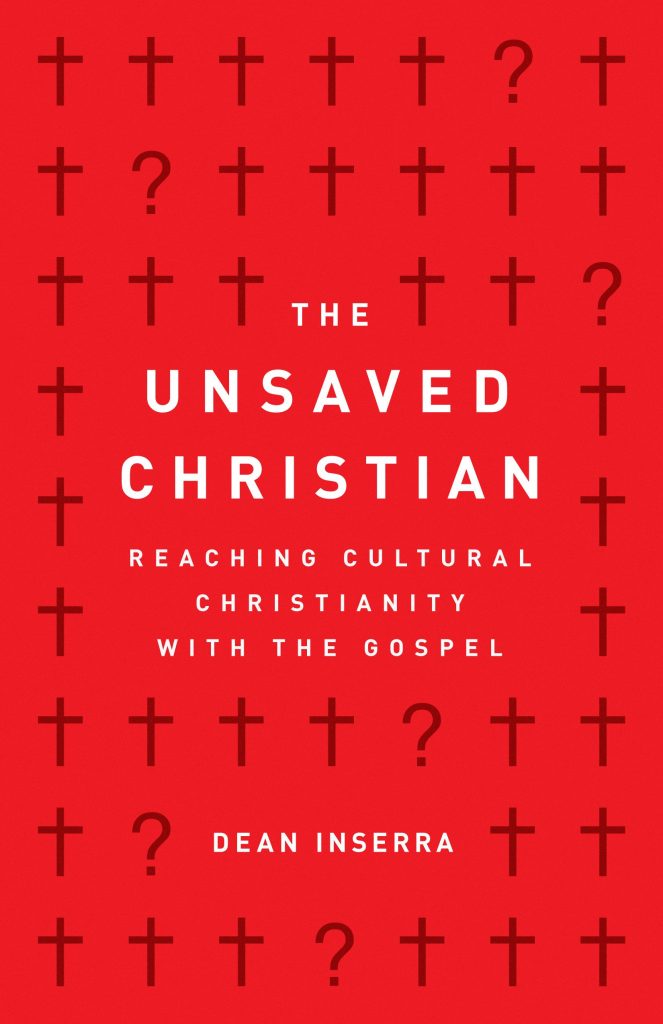There is a common experience across the Midwest, the Bible Belt, or the American South: the Cultural Christian. This book, “The Unsaved Christian” (by Dean Inserra) is written for them. Not to them, but for them. Which is exactly why it is so helpful.
Inserra opens by relating a story about leaving seminary and heading back home to his Bible Belt town where almost everyone would, on some level, claim to be a Christian. Dean explains how he almost felt weak going back to this area to do ministry, seeing how so many people already seem to have the Gospel (meanwhile his friends are off in the “hard places”). But do they have the Gospel?
In reality, these areas of the Country can be just as starved for the Good News as places like New York City, Los Angeles, or Portland. Whereas those cities are often forthright in their rejection of the Bible or Christ, the cities of Cultural Christians are often verbally accepting, but still rejecting the true Gospel. But how do we recognize these Unsaved Christians? Most importantly, how do we reach them?
That’s why this book was written.
The Good:
I pledge allegiance: This book’s strengths are the forthright way in which Inserra deals with each “type” of Cultural Christian about which he writes. In particular, I think he handles the “God and Country” Christians extremely well.
Catholic family: I have dealt with a large amount of people and family members that consider themselves Catholic, if only because their family has always been Catholic. These people can often be the most challenging to reach, and Dean’s encouragements on the subject, I believe, and helpful and Biblical.
A real mission field: As someone from a similar background of the Author (midwest, nominal Christian environment), I was highly encouraged reading this book. As someone in ministry, it reminded me that I am not a part of a lesser-important mission field than somewhere more exotic. Yes, people around me may have been to church a few times in their lives, or even attend 50 percent of Sundays, but that makes almost no guarantee that they know Christ or have even heard the true Gospel. In reality, everyone often thinks they have enough God in their lives to be just fine, but they are still headed for destruction.
In the US, where our Christian heritage “haunts” us still (in good ways), we can be tempted to lose the urgency of the Church’s mission. We can also be pessimistic because of all the apostasy we see around us in many mainline denominations. We may just feel discouraged about the prospect of getting the multitude of “Cultural Christians” to see that they actually have a need to be saved from their sin before a holy God. This book is easy to read, engaging, and hopefully will be used to equip us for reaching out to our neighbors—especially the neighbors that think they are Christian enough already.
Buy the book! Find it at amazon, moody publishers, and more.

